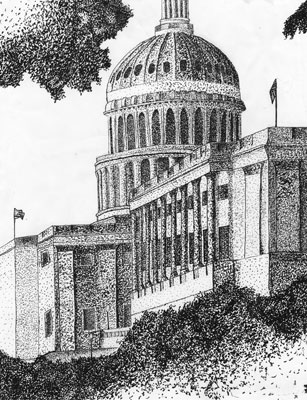All Nonfiction
- Bullying
- Books
- Academic
- Author Interviews
- Celebrity interviews
- College Articles
- College Essays
- Educator of the Year
- Heroes
- Interviews
- Memoir
- Personal Experience
- Sports
- Travel & Culture
All Opinions
- Bullying
- Current Events / Politics
- Discrimination
- Drugs / Alcohol / Smoking
- Entertainment / Celebrities
- Environment
- Love / Relationships
- Movies / Music / TV
- Pop Culture / Trends
- School / College
- Social Issues / Civics
- Spirituality / Religion
- Sports / Hobbies
All Hot Topics
- Bullying
- Community Service
- Environment
- Health
- Letters to the Editor
- Pride & Prejudice
- What Matters
- Back
Summer Guide
- Program Links
- Program Reviews
- Back
College Guide
- College Links
- College Reviews
- College Essays
- College Articles
- Back
If I Were Mayor of Pittsburgh
Being mayor of Pittsburgh, Pennsylvania would mean utilizing my complete power to improve our vast city. I would listen to the opinions of each citizen and treat everyone with respect regardless of their ethnicity or economic status. Pittsburgh is certainly a magnificent city, but if we do not take action against current issues, the population will decrease and many people will be unhappy. If I were mayor of my town, I would address prevailing issues such as air quality, transportation, and education.
First, the area of Pittsburgh, Pennsylvania has some of the dirtiest air in the nation. The substandard quality of air is putting the health of our local residents in serious risk. We need to protect the young children who play outside every day and people who suffer from asthma. In fact, the American Lung Association graded Allegheny County with an F for its overall air quality. Additionally, research found that the county also ranks in the top 2% of counties for cancer risk from pollution. Local residents are tired of having to keep their windows closed to keep the toxic odors out of their homes and fighting for industrial facilities to reduce their pollution. The Allegheny County Health Department (ACHD) is responsible for keeping the natives of Pittsburgh safe and being our advocate against the region’s worst air polluters. Instead, the ACHD has turned a blind eye rather than standing up to polluters. This is unacceptable. Clean air is a right, not a privilege.
Next, transportation remains a key concern for Pittsburgh even though our region is at or near top of numerous quality-of-life rankings. Funding for public transportation has been a significant problem in the past several years. Research shows that adequate public transportation has not been an obvious component of affordable-housing planning. In the Pittsburgh area, there are multiple low-income housing projects that sit in isolated sections of the city, in blighted zones with limited bus access. For example, Bedford Dwellings, in the Hill District, receives a bus only every 35 to 40 minutes despite rush hour. In response to this ominous trend, transit campaigners posed public transportation questions to Pittsburgh’s Affordable Housing Task Force at a panel discussion on May 24, 2016. One member of the task force did offer a possible answer to campaigners’ transit questions. Nikki Lu, the policy director for SEIU Western PA., said Wisconsin-based think tank Center on Wisconsin Strategy (COWS) recently published a report on Pittsburgh that lays out policies to help working families in the region. According to the report, “affordable housing should take into the account the combined costs of energy use and transportation needs that come with housing.” Lu stated that to turn their concerns into results, advocates must continue “to hold [leaders’] feet to the fire.”
Finally, Pittsburgh’s public education system is not designed to deal with what the future beholds for our students. It is slow to respond. Currently, our public schools are not up to the prominent standard of education that it needs to thrive. As a result, a high school diploma will no longer translate into a living-wage job. While we expect everyone to be educated, we have not built a sufficient system to serve the students. Our public schools do not serve poor kids well. They get fewer enrichment courses, fewer books, and fewer advanced courses. They experience higher teacher and principal turnover, as well as higher dropout and absenteeism rates. Nevertheless, there are exceptional teachers and superintendents who are making extensive efforts to provide an outstanding education for all students. Poor students should be educated on the same level as wealthier students, and we should foster each student’s love for learning.
In conclusion, if we decrease the intensity of current issues occurring in Pittsburgh without hesitation, our city will improve and become a better place to live. As a mayor, I would devote my time to bestow prosperity upon Pittsburgh’s citizens by promoting effective solutions to problems associated with our air quality, transportation, and education.

Similar Articles
JOIN THE DISCUSSION
This article has 0 comments.

This piece was written as an entry for the essay contest. I was inspired to write this piece because I enjoy leadership and have always wanted to experience being a mayor or even the President. I hope whoever reads my article will be inspired to make an everlasting impact on the city of Pittsburgh and how our residents live.